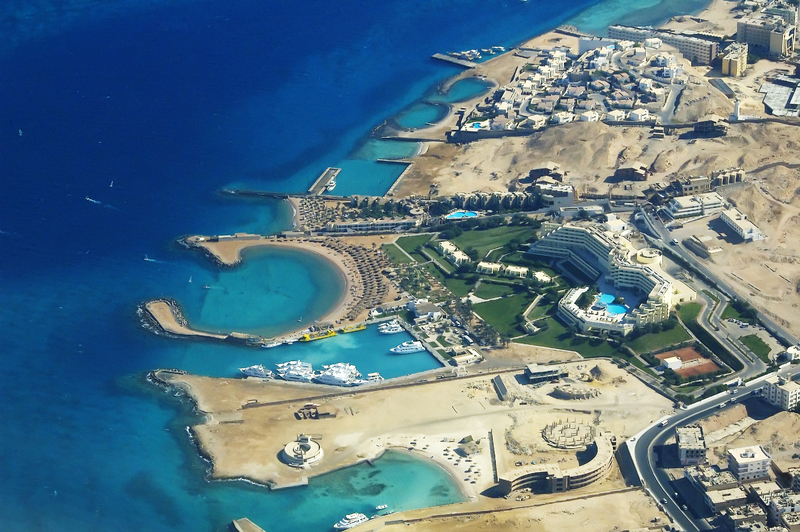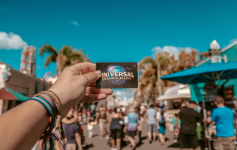It’s hard to believe that not so long ago the beautiful Red Sea tourist resort of Hurghada was little more than a humble fishing village. As recently as the late 1970s, this east coast Egyptian town remained little changed over the centuries; a well-kept local secret hidden from all but the most intrepid of thrill-seeking travellers. The world at large knew relatively little about this idyllic coastline with a number of superb beaches and crystal-clear, bright blue waters of the warm sea until word began to spread around the scuba diving and snorkelling community. By the 1980s, more and more visitors were becoming irresistibly drawn to the rich underwater reefs and marine life that lie just a short distance from the incredible beaches. The old town is still there, and locals are still fishing – but nowadays this historic hub shares its sands and sea with a lucrative tourism industry.
Development began in earnest in the 1990s, and from then to now more than 200 hotels have been built along the coastline at Hurghada to cope with growing demand from the tourism sector. Improved road and air communications (including its own airport, a ferry service and new bus routes), shopping malls and a variety of leisure facilities have sprung up around the town to accommodate a local industry that now boasts some two million visitors a year. The local population hovers around the 40,000 mark in the old town district of El Dahar, while the two main tourism areas of Village Road and Sheraton Road are now permanent home to some 180,000 workers and new migrants. Sheraton Road, El Shakala, is home to the region’s banks, shops, bazaars, restaurants and local eateries, while Village Road – or El Memsha – is the more tourist-friendly end of town, with nightclubs, chain restaurants, souvenir shops and malls. The old town in El Dahar is where you will find the biggest mosques, a vast local food market and regular bazaars crammed with bargains.
Today, tourist appeal continues to grow – thanks to a mix of superb facilities, an incredible land and seascape, and unique leisure attractions such as quad-biking into the Sahara desert, camel-rides, excellent local seafood dishes and boat-trips to the nearby uninhabited islands. Understandably, water sports continue to thrive in the area, and there is a large boating marina as well as plenty of opportunity for diving, windsurfing, swimming and coral reef exploration by glass-bottomed boat. For the less energetic, there is an impressive Marine Biology Museum and an aquarium, focusing on the rich and colourful sea life to be found locally. Most of Hurghada’s hotels are four or five star and boast attractive bars, in-house restaurants and luxury facilities. Tourist shopping is also available, as well as a huge cinema complex, casinos and discos. A bustling Tourist Information Centre has been established at the resort, to guide visitors through the myriad of local and leisure attractions on offer – whether wallowing in a luxury hotel or exploring the streets.



